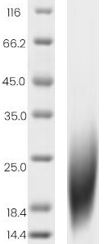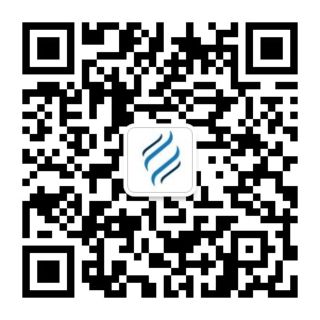Mouse CD278 Protein, His Tag
-
产品编号
KMP2314
-
别名
诱导性 T 细胞成本刺激器, Inducible T-cell costimulator, CD278
-
规格
- 50ug
- 100ug
- 200ug
| Catalog Number | KMP2314 |
| Alias | 诱导性 T 细胞成本刺激器, Inducible T-cell costimulator, CD278 |
| Size | 50ug, 100ug, 200ug |
| Product Description | The Mouse CD278 Protein(KMP2314) is produced in HEK293 Cells and the target gene encoding Glu21-Leu142 is expressed with a 6His tag at the C-terminus. |
| Molecular Name | CD278 |
| Product Introduction | CD278(ICOS):免疫球蛋白超家族(IgSF)成员,以跨膜形式增强T细胞活化和功能。 |
| Molecular Weight | 14.72 kDa |
| Expression System | HEK293 Cells |
| Species | Mouse |
| Purity | >95% |
| SDS-PAGE |  |
| Purification | Affinity Purification |
| Uniprot ID | Q9WVS0#function |
| Storage Condition | Aliquot and store at -20℃ to -80℃. Avoid repeated freezing and thawing cycles. |
| Formulation | PBS, pH7.4 |
| Shipping Condition | In general, the proteins are provided as lyophilized powder which are shipped at ambient temperature. They are shipped out in dry ice if supplied in liquid form. |
| Background | Inducible Costimulator(ICOS) is a member of the growing CD28 family of immune costimulatory receptors. Other family members are CD28, CTLA4 and PD1. ICOS shares approximately 39% amino acid similarity with CD 28 and CTLA4. Mouse and human ICOS share approximately 72% amino acid identity. ICOS is expressed on most CD45RO+ cells. ICOS expression is up-regulated within approximately 24-48 hours of activation on Th primed cells. B7-H2, a member of the B7 family of costimulatory ligands, has been identified as the ICOS ligand. The B7-H2/ ICOS interaction appears to play roles in T cell dependent B cell activation and Th differentiation. In addition, ICOS is more potent in the induction of IL-10 production, acytokine important for suppressive function of T regulatory cells. |
| Endotoxin | <1.0 EU/ug determined by the LAL method |
| Product Declaration | 该产品仅供科研使用,不可直接用于人体或注射。 |
可在纯化过程中加入蛋白酶抑制剂、低温操作,优化储存条件(如分装冻存于-80°C),并避免反复冻融。某些情况下,可选用蛋白酶缺陷型宿主菌减少降解风险。
常用SDS-PAGE、Western Blot检测表达,BCA/Bradford法测浓度,HPLC或质谱分析纯度,生物活性实验(如ELISA、酶活检测)验证功能。





 0
0
